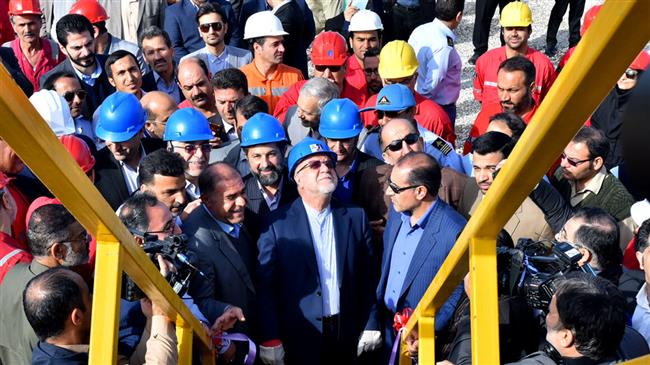Iran’s oil industry fights on as virus, US sanctions bite
Iran’s oil rig count has risen by 20 units even as major producers across the world, especially the US oil and gas industry, are stepping heavily on the brake pedal and reducing drilling at record speed because of the new coronavirus.

Minister of Petroleum Bijan Zangeneh said on Tuesday the spread of the disease did not stop Iran’s oil production, “thanks to persist efforts in the oil industry to protect the health of our employees”.
Iran’s oil-rich Khuzestan province has seen a spike in coronavirus cases, forcing authorities to close offices and impose travel restrictions in nine counties, including Abadan which is a major refinery town.
Elsewhere across Iran, the government has begun easing restrictions on normal life as new cases of infection have continued to decline.
The disease has hit the global oil industry hard, leading to a sharp decline in crude oil and products prices amid a slump in energy demand which has resulted in a rise in crude oil and products stocks, Zangeneh said.
“Gasoline storage in Iran has already reached an all-time high,” he said during a meeting with his deputies and Vice President Es’haq Jahangiri in Tehran.

Despite being a major oil producer, Iran was a gasoline importer for almost four decades because local refiners could not meet growing demand. The imports had turned into a strategic vulnerability for Iran which has been facing round after round of Western sanctions for years.
That ended early last year when Iran brought a major refinery project in Bandar Abbas online, making the country self-sufficient in gasoline and producing some surplus for export.
The coronavirus has also caused a temporary suspension of some upstream and downstream projects in the oil industry, especially the Pars Special Economic Energy Zone which handles Iran’s giant South Pars oil and gas resources, Zangeneh said.
Iran’s sprawling petrochemical industry is not unscathed. “A 40 percent drop in feedstock supplies in downstream petrochemical units from last year, a shutdown of most bitumen production sectors and a drop in sales of petroleum products are other effects of the coronavirus outbreak,” the minister said.
However, “our analysis is that the jobs which have faced difficulties in the oil industry will be revived; they will not be eliminated from the country’s employment cycle”, Zangeneh added.
On Tuesday, the National Iranian South Oil Company said 20 oil rigs laid down by the Ministry of Petroleum will be put be back to work.
Zangeneh has said Iran’s oil, gas and petroleum sectors are on the frontline of the fight against the United States’ “maximum pressure” which President Donald Trump has primarily applied on the oil industry because it accounts for a big chunk of Iran’s hard currency earnings.
In February, Iran unveiled its first oil rig manufactured by domestic companies, fulfilling a dream which the country’s petroleum industry cherished for long.
Sanctions had made it difficult for Tehran to rent oil drilling rigs, forcing Ministry of Petroleum to approach intermediaries to find one to buy. In 2011, the ministry spent $87 million to buy an oil drilling rig, but it never reached the country’s shores in what came to be known as “the case of the missing rig”.







